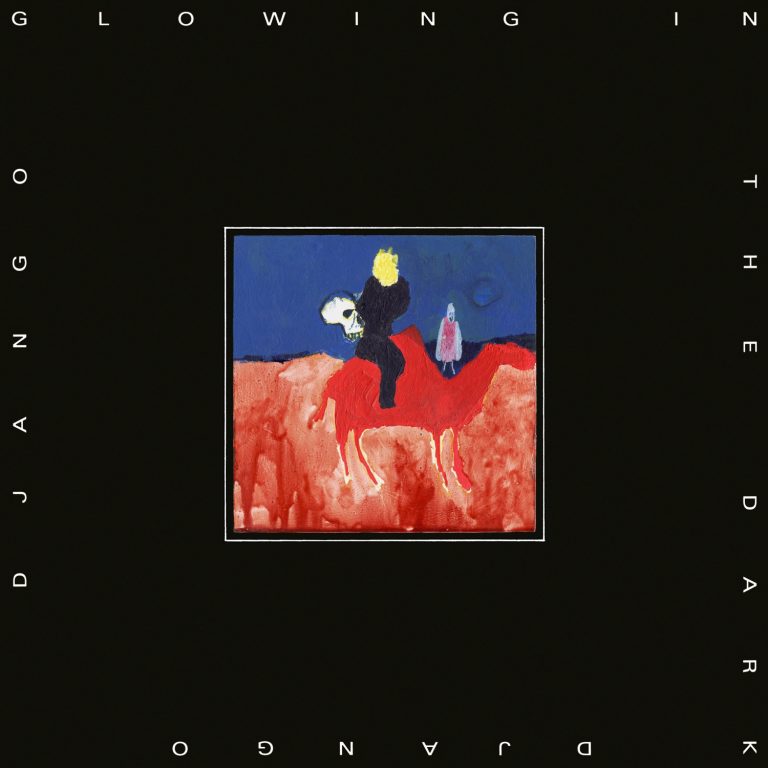Much has been made of the waning influence of British guitar music in the larger scale of popcultural discourse. Being on the forefront of journalistic endeavors for canonization about 15 years ago – with bands like Bloc Party, The Rakes and Maximo Park dominating clubs and publications and spawning off longstanding success stories like The xx and The Horrors – the last decade saw most of British Rock bands grasp for American sounds. With the vaguely Californian-sounding psychedelia of Mac DeMarco and Tame Impala dominating the charts, young British bands oriented themselves on lush, club friendly aesthetics that incorporated synthesizers and new wave influences. But those takes often forgot that, like wine, music sometimes needs a few years to grow and age. Being ahead of one’s time might mean to be misunderstood, but then, if revisited years later, a whole bouquet of tasteful nuance and emotional depth might reveal itself.
This was mostly true for the shifting references and modernist undertakings of Django Django’s 2012 self-titled debut album. Their odd, lush pastel psychedelia took the urban folk of The Byrds and added elements of current avant-garde pop, such as Animal Collective, Grizzly Bear, and Menomena. It made for a fascinating mix, somewhere between Beck’s slacker classic Mellow Gold, Caribou, and faintly obscure 60s acts such as Strawberry Alarm Clock or Chocolate Watchband. But, given the reluctance of critics to assess pastel psychedelia as its own genre (thus forbidding a wider zeitgeist context to assess the music), and the hard sell of a modernist update of The Byrds, the sound of Django Django was quickly urged into a different direction. With cover-art more in line with the emerging vaporwave trend (aka: lots of Greco/Roman statues and even more pastels) and an urge for danceable rhythms, follow-up records Born Under Saturn and Marble Skies didn’t really cause a splash.
So it’s with a bit of confused bemusement that their new album, Glowing in the Dark, drops in mid-February. Somewhat of a return to form, the album sounds like warm summer nights and white wine, 90s videogames and 00s Beck; there’s a lot here that contradicts the still-ongoing mood of lockdown fatigue.
The album’s opener, “Spirals”, starts with an ascending synthesizer that feels right out of an Atari game, only to dive into a bass line that would have made Japan’s Mick Karn proud. “Got Me Worried” delivers the band’s familiar take on blissful 60s-pop and the funky “Free from Gravity” could have fit on Beck’s Guero. The vaguely chillwave “Hold Fast” and hook-rich “Glowing in the Dark” are likely to connect with fans of Blondie or Arcade Fire’s Reflektor. The aural weirdness of the instrumental “The Ark” is intriguing, but an especially interesting twist of the band’s sound occurs on the slightly darker “Night of the Buffalo”, where they incorporate vaguely middle eastern string melodies into its fast pace and multi-faceted vocal melodies.
Where Marble Skies went a little Midnite Vultues, the bass-heavy Glowing in the Dark resembles Reflektor and Cut Copy – in other words, actual dance albums. Ironically, one comparison that comes to mind repeatedly is The Dandy Warhols’ brief ambition to create dance music. While Django Django mostly succeed in their aspirations, revitalizing their established formula, it also feels a little hard to fully embrace the sound with the current climate the world finds itself in. Maybe that’s why the simple folk of the brief “The World Will Turn” is one of the album’s most engaging songs, introspectively ruminating on distance and heimweh. Where their debut was released at a point when guitar music was struggling – and succeeding – to reassess itself, Django Django’s new album feels like a harbinger of a summer we still anticipate, while also lacking the youthful innovation the band was known for in the beginning, as they abandon singer Vincent Neff’s characteristic guitar tones on most of the tracks.
At the same time, songs like “Right the Wrongs” and “Headrush” are instantly enjoyable and clever, and it’s painful to think that these songs might need to marinate a year before audiences can see them performed live, where they belong. Yet, maybe that could be to Glowing in the Dark’s benefit: like a bottle of aforementioned white wine, it needs to develop within the container of people’s memory before it can fully blossom into the role of moody summer album that it aspires to be. The nuances are definitely already there.

